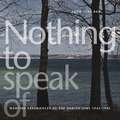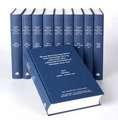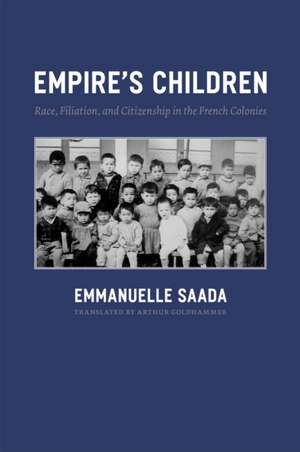Empire's Children: Race, Filiation, and Citizenship in the French Colonies: Emersion: Emergent Village resources for communities of faith
Autor Emmanuelle Saada Traducere de Arthur Goldhammeren Limba Engleză Hardback – 15 mar 2012
Europe’s imperial projects were often predicated on a series of legal and scientific distinctions that were frequently challenged by the reality of social and sexual interactions between the colonized and the colonizers.When Emmanuelle Saada discovered a 1928 decree defining the status of persons of mixed parentage born in French Indochina—the métis—she found not only a remarkable artifact of colonial rule, but a legal bombshell that introduced race into French law for the first time. The decree was the culmination of a decades-long effort to resolve the “métis question”: the educational, social, and civil issues surrounding the mixed population. Operating at the intersection of history, anthropology, and law, Empire’s Children reveals the unacknowledged but central role of race in the definition of French nationality.
Through extensive archival work in both France and Vietnam, and a close reading of primary and secondary material from the Pacific islands and sub-Saharan and North Africa, Saada has created in Empire’s Children an original and compelling perspective on colonialism, law, race, and culture from the end of the nineteenth century until decolonization.
Through extensive archival work in both France and Vietnam, and a close reading of primary and secondary material from the Pacific islands and sub-Saharan and North Africa, Saada has created in Empire’s Children an original and compelling perspective on colonialism, law, race, and culture from the end of the nineteenth century until decolonization.
Din seria Emersion: Emergent Village resources for communities of faith
-
 Preț: 144.99 lei
Preț: 144.99 lei -
 Preț: 94.22 lei
Preț: 94.22 lei -
 Preț: 133.01 lei
Preț: 133.01 lei -
 Preț: 146.50 lei
Preț: 146.50 lei -
 Preț: 125.33 lei
Preț: 125.33 lei -
 Preț: 179.93 lei
Preț: 179.93 lei -
 Preț: 307.53 lei
Preț: 307.53 lei -
 Preț: 138.81 lei
Preț: 138.81 lei -
 Preț: 208.31 lei
Preț: 208.31 lei - 18%
 Preț: 348.59 lei
Preț: 348.59 lei -
 Preț: 156.84 lei
Preț: 156.84 lei -
 Preț: 300.55 lei
Preț: 300.55 lei -
 Preț: 273.93 lei
Preț: 273.93 lei -
 Preț: 176.35 lei
Preț: 176.35 lei - 9%
 Preț: 352.77 lei
Preț: 352.77 lei -
 Preț: 544.68 lei
Preț: 544.68 lei -
 Preț: 310.21 lei
Preț: 310.21 lei - 8%
 Preț: 311.68 lei
Preț: 311.68 lei -
 Preț: 105.59 lei
Preț: 105.59 lei - 8%
 Preț: 360.28 lei
Preț: 360.28 lei -
 Preț: 126.95 lei
Preț: 126.95 lei -
 Preț: 176.35 lei
Preț: 176.35 lei - 6%
 Preț: 324.95 lei
Preț: 324.95 lei -
 Preț: 101.43 lei
Preț: 101.43 lei -
 Preț: 143.71 lei
Preț: 143.71 lei -
 Preț: 185.37 lei
Preț: 185.37 lei -
 Preț: 163.52 lei
Preț: 163.52 lei - 12%
 Preț: 251.95 lei
Preț: 251.95 lei -
 Preț: 182.98 lei
Preț: 182.98 lei - 18%
 Preț: 2261.34 lei
Preț: 2261.34 lei -
 Preț: 166.59 lei
Preț: 166.59 lei -
 Preț: 159.42 lei
Preț: 159.42 lei -
 Preț: 115.82 lei
Preț: 115.82 lei -
 Preț: 277.54 lei
Preț: 277.54 lei -
 Preț: 161.12 lei
Preț: 161.12 lei -
 Preț: 114.66 lei
Preț: 114.66 lei - 12%
 Preț: 290.56 lei
Preț: 290.56 lei -
 Preț: 183.89 lei
Preț: 183.89 lei - 17%
 Preț: 423.14 lei
Preț: 423.14 lei - 9%
 Preț: 352.50 lei
Preț: 352.50 lei -
 Preț: 147.26 lei
Preț: 147.26 lei - 8%
 Preț: 563.24 lei
Preț: 563.24 lei -
 Preț: 229.92 lei
Preț: 229.92 lei - 8%
 Preț: 346.31 lei
Preț: 346.31 lei -
 Preț: 216.08 lei
Preț: 216.08 lei -
 Preț: 215.51 lei
Preț: 215.51 lei - 9%
 Preț: 353.24 lei
Preț: 353.24 lei -
 Preț: 140.57 lei
Preț: 140.57 lei -
 Preț: 92.35 lei
Preț: 92.35 lei - 8%
 Preț: 564.99 lei
Preț: 564.99 lei
Preț: 523.30 lei
Preț vechi: 674.42 lei
-22% Nou
Puncte Express: 785
Preț estimativ în valută:
100.22€ • 102.27$ • 84.32£
100.22€ • 102.27$ • 84.32£
Carte indisponibilă temporar
Doresc să fiu notificat când acest titlu va fi disponibil:
Se trimite...
Preluare comenzi: 021 569.72.76
Specificații
ISBN-13: 9780226733074
ISBN-10: 0226733076
Pagini: 344
Dimensiuni: 152 x 229 x 25 mm
Greutate: 0.57 kg
Editura: University of Chicago Press
Colecția University of Chicago Press
Seria Emersion: Emergent Village resources for communities of faith
ISBN-10: 0226733076
Pagini: 344
Dimensiuni: 152 x 229 x 25 mm
Greutate: 0.57 kg
Editura: University of Chicago Press
Colecția University of Chicago Press
Seria Emersion: Emergent Village resources for communities of faith
Notă biografică
Emmanuelle Saada is associate professor of French at Columbia University. Arthur Goldhammer is an award-winning translator who has translated books by Georges Duby, Jacques Le Goff, and Jean Starobinski.
Cuprins
Foreword by Frederick Cooper
Acknowledgments
Introduction
Introduction
Part I: Le Métissage: A Colonial Social Problem
Chapter 1: An Imperial Question
Chapter 2: A Threat to the Colonial Order
Chapter 3: “Reclassifying” the Métis
Part II: The Law Takes Up the “Métis Question”
Chapter 4: Nationality and Citizenship in the Colonial Situation
Chapter 5: The Controversy over “Fraudulent Recognitions”
Chapter 6: Investigating Paternity in the Colonies
Chapter 7: Citizens by Virtue of Race
Part III: The Force of Law
Chapter 8: The Effects of Citizenship
Chapter 9: Identities under the Law
Chapter 10: French Nationality and Citizenship Reconsidered
Conclusion
Notes
Bibliography
Recenzii
“Empire's Children is one of the finest recent examples of history à lafrançaise—its research deep, its arguments rigorous, and its erudition impressive. It is a must-read for anyone interested in how colonialism shaped modern Europe and racial thinking.”
"Empire's Children is a brilliant and deeply researched exploration of the place of race in the French citizenship experience, focusing on the rights of 'mixed-race' people in French Indochina and other colonies. Emmanuelle Saada deftly weaves together the perspectives of jurists, colonial officials, journalists and the "mixed-raced" individuals themselves to demonstrate why the French Empire -- and by extension, today's France -- cannot be analyzed in black and white terms. A nuanced and important account, beautifully translated by Arthur Goldhammer."
“In this pathbreaking work of historical legal anthropology, Saada uses a vast array of primary sources to trace the deep racial logic of a new 1928 decree regulating the status of the métis, or person of mixed race, in Indochina. At a moment when much of the historiography of empire is focused on the crude violence of colonial rule, Empire's Children persuasively argues for the critical role of law in the exercise of power overseas.”
